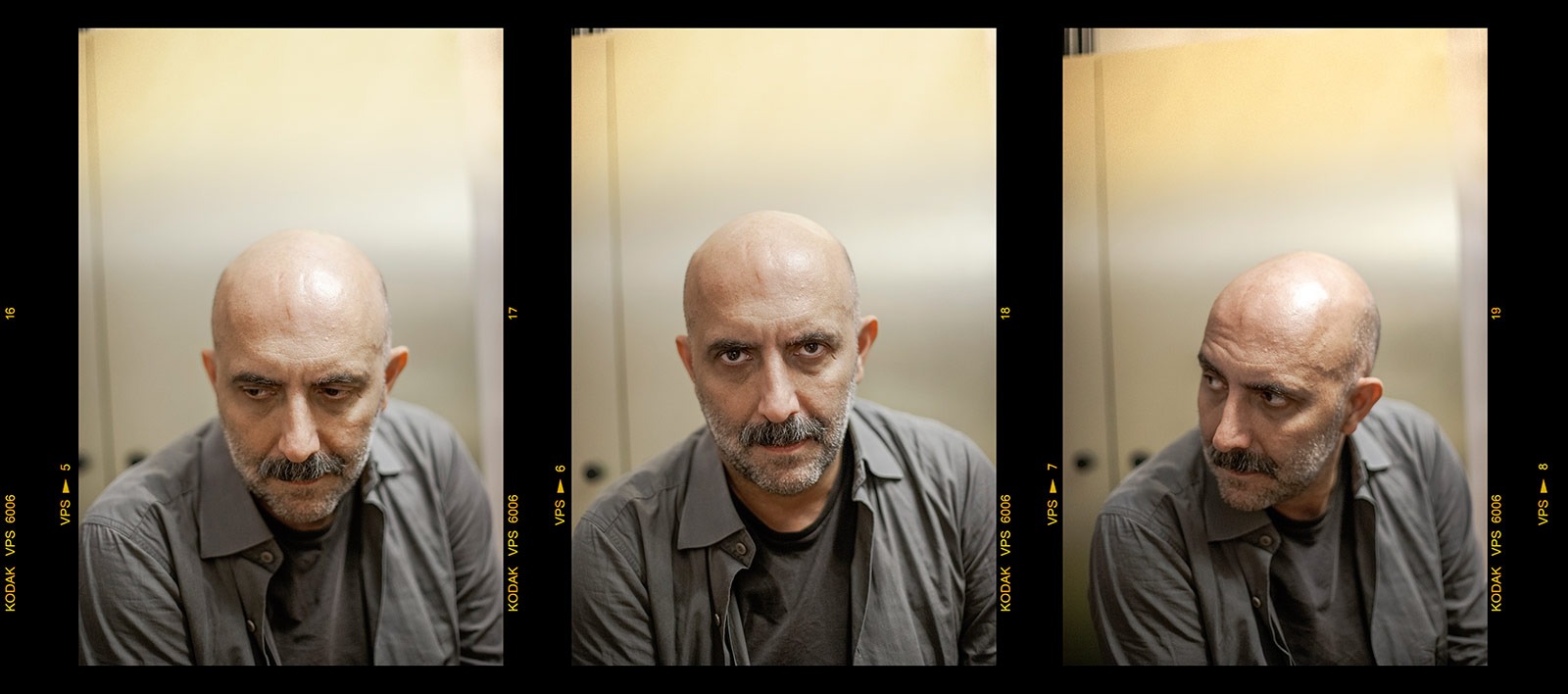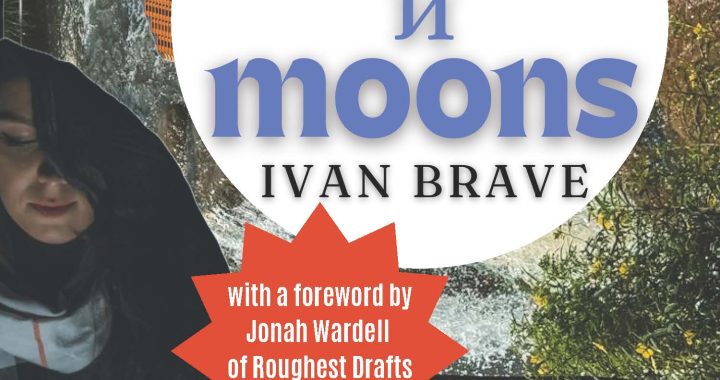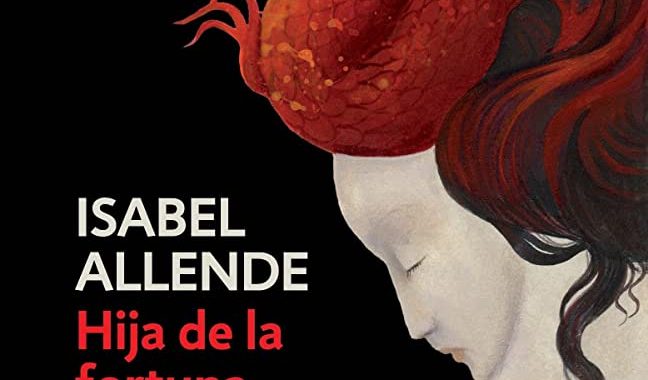Noé? Who he?
Only one of my top three favorite directors. Ever since I watched his 2002 Irréversible, and it hit me in the stomach with a glass fist, I have been a junkie, in debt to him and his style. Inside his career’s stash box one finds films, music videos, screenings at Cannes, the occasional film ban, and the makings of a legendary artist.
It goes without saying, too, that he is a bit of a cult leader in cinematic circles, that I am not the only one addicted to his work. You can imagine how excited I was to see his latest film, Climax, two months ago. Between three friends, we purchased seated tickets to a non-rated screening of it in Brooklyn. But to our sore dismay, we walked away feeling oddly unsatisfied. One friend, who had never seen a Noé film before, said it sucked. The second friend, who knows what the director is about, said it was “alright,” which by Noé’s standards is about as sexy as going dutch on a first date. And I? The fanboy? I was disappointed. C’mon, the movie was supposed to rock! It actually has an amazing soundtrack, great actors, fascinating shots, an engaging story based on a real life tragedy, and intense elements, but none that gelled into the powerful orgasm we had expected. All stroke and no release.
Leaving the cinema, blue-balled but hopeful, I promised the boys to find out why.
On my quest for answers, a certain website, like a beacon in a dark storm, shone brightly ahead. It would provide the answers I needed. It is called Les Temps Détruit Tout, and it is the unofficial, but deeply, for over 16 years deeply online space dedicated to the cinema of Noé (the name derives from an epigraph in Irréversible).
The following is a conversation with co-managers of the site — Fred, the founder; and Alex, who answered my request for an interview over Facebook — where I learned more about their project, learned more about the director we admire, and had a little fun with some fans along the way.
- Your Facebook account states you usually reply within the hour. But when you responded to my first message even quicker than that, I was pleasantly surprised. How does social media intersect with your life?
Fred: Alex is answering on Facebook. He’s far more reactive than I am. I am an old user of social networks, (particularly Twitter) but I’ve recently decided to shut down most of my personal accounts in order to stop worrying and love the bomb: life is short.
Alex: Even when I’m doing something else, I usually keep them opened in a tab, just by (bad) habit, in case a friend of mine would talk with me for instance. Also, I’m an insomniac so it helps me going through the night but I personally don’t post a lot of things, except when I want to share my work.
- Your biography details your early, and relatable, fanaticism with the Harry Potter series. If you could re-imagine any scene from the book, what would it be, and how would you shoot it?
Fred: If Alex had told me first he was a fan of Harry Potter, I would have never said “yes” to him! (I’m joking). I’d say I’m far more into Stephen King than J. K. Rowling. Maybe because I’ve never read J. K. Rowling. But Alex is fan of Stanley Kubrick so we’re friends. 🙂
Alex: Fun fact, I’m currently re-reading the series — I’ve started the fifth book a few days ago. That’s a tricky question, there are a lot of scenes missing in the movies but I think they still managed to do a great movie series — I admit I discovered the films way before I’ve read the books. But maybe I’d choose to add the history of the Marauders in Prisoner of the Azkaban (which is my favorite Harry Potter movie), in a long melancholic flash back scene. But I’d also change Barty Crouch’s treatment in The Goblet of Fire. In the book, he completely disappears until a very creepy scene while in the movie we don’t really feel he’s missing and his death is a bit awkward and lacks the thrilling vibe of his coming back. But as much as I love the movie series, I think there would be A LOT of change to bring. But right now, I’d definitely wish David Yates would stop directing Fantastic Beasts as they are visually poor and their script not so entertaining.
- Alex, your bio also states that A Clockwork Orange was the first film you saw that showed you cinema could be more than just entertaining. Now, I know that it is my father’s favorite film, not to mention I myself became obsessed with the film as well, decades after its release, of course. But the fact remains, this Kubrick film continues to strike young men in a very deep place. Question to both: What is it about the work that makes it almost timeless, nearly flawless, most successful?
Fred: I’ve discovered Kubrick because of King. A friend of mine would watch several adaptations of King’s novel and The Shining was in the middle of the VHS. When I saw the Kubrick, I was totally transformed, like Alex I think: cinema could be something different but also accessible to EVERYBODY. That’s what Kubrick’s films are: clever AND popular. Maybe because of their perfection. And even Gaspar is far from this perfection. The form is fantastic but his scripts should be better, Gaspar should use a real scriptwriter and work from books. That’s the only thing he lacks…
Alex: I guess there are several reasons. First, it was forbidden during a few decades which turned it into a curiosity, something you HAD to watch, just like A Serbian Film years after somehow (even if it isn’t such a great movie, even if it remains one of Gaspar Noé’s favorite European horror flicks). But there is also the fact that it had a huge impact on many people, directors, musicians and has become a pop reference. Its tracking shots, its use of classical music on violent imagery (I’m pretty sure it inspired Coppola for Apocalypse Now, and also a lot of blockbusters – though I’m not sure Kubrick “invented” this), its out-of-time production design, its slang invented by Anthony Burgess. In France, some expressions directly come from the French version of the movie (such as “Dacodac” which I believe to be “Welly well”’s translation) and people keep using them without realizing where it comes from. And obviously, its themes which make us question how much power and control towards our health are we willing to give to our governments.
- In 2015, the year LOVE was released, Fred you brought Alex on board for LTDT as Facebook admin, later as a co-admin for the website. Overall, you both interact with a lot of fans like me (and the LTDT website hosts a page for the best of the best fans for Noé). What’s one element in the director, or of his work, that you would say unites fans across the world?
Fred: The willingness to share with Gaspar their unique ideas 🙂
Alex: I think it’s mostly the technical aspect of his movies, both the sound design and camera tricks. Some people tend to think those are only thanks to Benoit Debie (which, don’t get me wrong, remains one of the best cinematographers in the world, and not only because his shots are appealing) but they also forget Gaspar is also doing the camera work. He even practiced his 360 degrees shot in his music video Si mince for Arielle, which was done a few years before Irréversible. And after reading Fred’s answer, yeah, DEFINITELY people want to reach Gaspar to show him their work (or their music, obviously far better than Thomas Bangalter’s).
- LTDT has a juicy interview section with some of the most curious conversations, whether with actors, technicians or friends of Noé. Notably, I’m thinking of two, an early one in with a character at Le Rectum, Costes; second, the mother of the poor boy in CLIMAX, Claude-Emmanuelle. Who are your top 5 artists / actors that you would like to see exclusively interviewed for LTDT?
Fred: Gaspar Noé, Laurent Lufroy, Benoit Debie, Paz de la Huerta, Thomas Bangalter
Alex: I’m not totally sure but Laurent Lufroy (poster designer), Tom Kan (graphic designer) or Benoit Debie are surely among them. I would have loved to interview Sofia Boutella but she already answered a lot of questions right now. I hope that we could interview some of the leading roles of Lux Æterna and curious to talk with some technicians such as Lazare Pedron (focus puller) or Ken Yasumoto (boom operator), just to know if and how their jobs are affected by Gaspar improvising his shots.
- You mentioned during our exchange that you wouldn’t necessarily interview the director himself, since there is plenty of that out there on the web already — plus, you’d prefer to feed the hardcore fan with insights and curiosities that the mainstream media wouldn’t necessarily find. But, imagine, if you were to interview the director himself, what four or five questions would you ask him?
Fred: I’ve written some questions years ago but since this time, I think he already answered in other interviews… I would just to talk about techniques in his movies and about Kubrick. I don’t care from where he finds his ideas.
Alex: “Looking back on your work, are you totally happy with them or maybe would you slightly change some stuff in them? I Stand Alone doesn’t have an HD remaster – which makes it the only one who never got any proper Blu-ray release (that Australian Blu-Ray by Accent Films is apparently just an upscale from a DVD). With Irréversible coming back in France, can we expect to see it in HD soon? If not, why so? A few years ago, you were supposed to shoot Golden Suicides but it’s been stuck because of some US problem (can’t remember what kind of problem). Are you still attached to the project and if you are, will you keep Ryan Gosling as a leading actor or are you coming back to an anonymous cast?”
- Alex, you do a good job in your own interview, on Behance, to detail your creative process and stylistic vision for LTDT. I’m sure Fred appreciates all the work you do for the aesthetic and promotion of the website. What, if any, are the website’s future goals, aesthetic-wise, promotion-wise?
Fred: My personal wish is to let LTDT become the oldest independent and ads-free website on internet. I just want it to survive me, in order to leave a little trace on the web and also to feed fans when Gaspar is off the media during years. But it can only work if I work with great people. And Alex is the one.
Alex: Thanks! For now, we have to improve a few details, re-add a lot of archives that we’ve deleted last year when we updated it and we should take the time to translate our interviews but it’s not our priority right now.
- Hard question: if you had to explain Noé’s entire artistic ethos in a few words, say, to a friend at a party, who never heard of him, but might be curious to discover a new favorite director: what would you say, what is Noé’s body of work to you?
Fred: He’s a dirty Kubrick with no script.
Alex: Gaspar is a sadistic magician. Just like the sawing a woman in half trick, the audience is shocked during the show and ends up realizing all of this was fake and is amazed by it, trying to understand how and what happened. Even if the general mood is stuck in your mind for a few moments after, let it be hours, days, months. And while people are shocked, the magician is having fun because he perfectly knows the tricks, he knows that he doesn’t actually hurt anyone on set. But I’d warn my friend that he or she really has to be prepared to experience this as it can actually causes anxiety and make you feel sick. And I love it because all those sensations are not given just for a sadistic pleasure (well, probably a bit) but also because it’s meaningful towards the story we’re being told.
- If you’ll allow me to get personal for a second, from one fan to another: how would you rank CLIMAX among its director’s filmography? Despite its almost perfect cinematic execution, for me it was not his most emotionally impactful film (namely, emotional impact is why I appreciate the master’s work in the first place). His latest film had me searching for answers for days, until I found your page. So I’ll ask again, but put another way: could you explain, to the best of your ability, what you think Noé was trying to achieve?
Fred: I can’t answer this question because I don’t know what to think about Climax. I don’t even know if I like it and that’s the first time it happens to me. But there are incredible dancing scenes and the end should have been more Lucio Fulciesque.
Alex: I really like Climax, it made me discover those dances and it has some wonderful actors, such as Sofia Boutella, Souheila Yacoub or Romain Guillermic who I can’t wait to see again in another movie. I especially love that scene during which Guillermic follows Boutella, kicking the doors while Boutella is full of grace. I’m pretty sure it’s not Gaspar’s intention at all, but I think it tells a lot about sexism in society: a man is violent towards a woman which has to keep quiet, pretending she’s not affected by it, until she can’t anymore – and the man doesn’t understand why she screams and runs away, and he keeps coming back to her without questioning himself first. But to answer your question, I think he simply wanted to film graceful dancers. He almost always included dance scenes in his movies and even offered her role to Klara Kristin in Love just because he saw her dancing in a club. But he never actually showed dancers as characters.
- Finally, a legacy question. Looking into the future, what do you foresee Noé’s place in cinema will be? Is it too early to tell? Does the director still have a few tricks up his sleeve? What do you imagine, and what would you like to see?
Fred: I can’t read the future but I remember when Steph (my fiancée) and I met him in Cannes in 2007: every person in the film industry was visibly liking him in the long corridors of the Palais des Festival… He must direct his own 2001. Enter the Void was probably a sort of the closest in his mind but he can certainly do better. With a script.
Alex: He’s been shooting for a long time so it’s not too early, but I’m really excited to see what’s coming next. He’s really interested by technological progresses, and always uses it when he can: DSLR (Ritual), 3D (Love and some 3D photo exhibition he had made with his father and sister back in 2013/2014), Astera LEDs (LEDs you can control with a tablet – used in Climax) and has signed to make some VR experiment with Atlas V but I don’t think it’ll be done soon. So, I expect him to experience everything technologies can offer him to do, just as Abel Gance used to in his times. Let’s just hope that he, one day, will be given a lot of budget and freedom again. But I think he won’t focus on movies as ambitious as Enter the Void ever again. He likes to shoot secretly and he’ll probably shoot a lot of different things as quickly as possible and I really hope — and believe — he’ll someday shoot different genres, with, indeed an actual script.
. . .
Gentlemen, thank you. Thank you for this wonderful chance to meet, and for being honest! Thank you, also, for keeping the site fresh and alive. Just from viewing your homepage today, I see the director will release a video-essay of his work at Cannes on the 18th. I wonder when us mortals will have access to it.
As for his latest film, I suppose art is art and a director adapts and an audience receives what they need to receive from a film. Basically, I’ll just rewatch Climax at a time in my life when I most need some sick 90s electronic music backgrounding sexy dance sequences and psychedelic madness.
And, ah, and a post-script: Lol, Alex! Did you know my favorite Potter book is Prisoner of Azkaban, too? (Sorry Fred, we’re children of our time.)
CUT!




